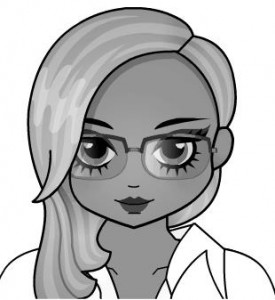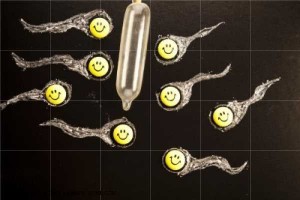In the spring of 2012, I was hired as a middle school science teacher. The experience alternately elated and terrified me. One of the most terrifying moments came in March. I was discussing genetics with the 8th grade, trying to teach them the basics in time for the state’s standardized science test, which was only a couple of weeks away. As we talked about dominant and recessive traits, one of my students asked the question, “Mr. L, what makes a person a boy or a girl?”
 “Well,” I replied as my heart sped up slightly, “the sex of a person is determined by whether they have two X chromosomes or an X and a Y chromosome.” I drew XX and XY on the board. “If a person has two X chromosomes, then we say that that person is female. If a person has an X and a Y chromosome, we say that that person is male. Of course,” I couldn’t resist adding, “all babies start off female since there is only an X chromosome present at first.” This statement drew a mix of giggles and questions, so I quickly explained that a mother could only give an X chromosome to the child, while the father could donate either an X or a Y. “So it’s my dad’s fault that I’m a girl!” one student exclaimed, provoking a round of laughter and giggles.
“Well,” I replied as my heart sped up slightly, “the sex of a person is determined by whether they have two X chromosomes or an X and a Y chromosome.” I drew XX and XY on the board. “If a person has two X chromosomes, then we say that that person is female. If a person has an X and a Y chromosome, we say that that person is male. Of course,” I couldn’t resist adding, “all babies start off female since there is only an X chromosome present at first.” This statement drew a mix of giggles and questions, so I quickly explained that a mother could only give an X chromosome to the child, while the father could donate either an X or a Y. “So it’s my dad’s fault that I’m a girl!” one student exclaimed, provoking a round of laughter and giggles.
“In a manner of speaking, yes,” I replied. As much as I wanted to keep them engaged in learning about genetics, this particular line of questioning was starting to become dangerous. Hopefully, I could redirect them before someone asked the question.
“Mr. L?” Just by looking at the student’s face, I could tell that I wasn’t going to be so lucky. “If your genes say whether you’re a boy or girl, then what’s a hermaphrodite?”
Of course. “Well,” I explained, praying that none of the students could tell that I was starting to sweat, “that depends on what you mean by that term. Strictly speaking, a true hermaphrodite has the sex organs of both male and female. However, that’s not possible in humans.”
“I think she meant a transsexual,” another student chimed in.
“What, you mean a he-she?” a third spoke up.
“Yeah that!” the first student replied.
“What about someone who is transgender?” a fourth asked.
“Hold up,” I interrupted, raising a hand for silence, both resigned and elated to explain. “Before we talk about those terms I need to explain something to you. If I say the words ‘sex’ and ‘gender’, do you think that they mean the same thing?”
An affirmative chorus answered the question. “Well, they actually mean two different things. A person’s sex is their physical appearance, while their gender is how they perceive themselves. For most people, these are the same thing. A transgender person is someone for whom they aren’t the same.”
“What do you mean?”
“Imagine for a moment,” I told them, “that you had been born with the body of the opposite sex. For example, let’s say Danielle” I motioned to the student in question, “had been born in a boy’s body. Now, Danielle knows that she is a girl, but because of how her body looks she is raised as a boy. That is a transgender person.”
“What about a transsexual?”
“I’m coming to that. A transsexual is a transgender person who undergoes medical treatment to make their body look different.”
“You mean like surgery?” an incredulous student asked.
I nodded. “Ewww!” “Gross!” “Yuck!” “Mr. L, why would someone do that?”
“Think about it,” I said. “Remember our example? How do you think it would feel if you know something but everyone around you is telling you something else? How would you feel if that happened to you every day, and it affected what you were allowed to do?”
“That would suck!”
“What causes a person to be like that?”
“We’re still not sure,” I replied. “One theory is that when the baby is still inside the mother, its brain is flooded with too much of the opposite sex hormone.”
“Who’s ‘we’?”
Damn. “Scientists,” I half-lied. “The scientists and doctors who study these types of people.” I glanced at the clock. “Sorry class, but it’s time to clean up. I need the people who passed out folders to please collect them. Would whoever passed out pencils please collect those?”
The flurry of activity and chatter distracted me for a short time, but I had to work to keep focused on the rest of my classes that day. On the drive home, I could finally mull over what had happened. How ironic was it that I should end up teaching about a subject that I had sworn to myself not to think about during the school day. I wondered how my students would have reacted to learn that the person teaching them about all of this stuff was in fact transgender.
While the above was the most dramatic incident of the semester, it certainly wasn’t the only one. I taught Earth science to the sixth grade, basic biology to the seventh grade, and basic physics to the eighth grade. In between classes I served as a hall monitor, greeting students, answering quick science questions, and chasing the stragglers to class. The weather turned unseasonably warm in mid-April, so I had to add nagging students about the dress code to my duties as well. “But Mr. L it’s so HOT!” they would complain.
“I know,” I told them. I really did, too. None of them knew that under my shirt was a piece of clothing called a binder. This tank-top like garment is made of polyester and spandex and is specifically designed to flatten breasts, to make a chest look more masculine. It did the job, but added a second layer to my wardrobe, which meant that I heated up a lot faster than many other people. By the end of the day, my binder was plastered to me with sweat.
I also had to watch what I said while at school. Not only did none of the students know about my being trans*, but neither did any of the staff. My fellow teachers were all wonderful human beings, and had been nothing but kind and helpful since my arrival. All of them knew I was only there until the end of the year, and as the end of the semester approached many of them began inquiring as to what my plans were for the next school year. “Do you have a job yet?” “Where are you looking?” I appreciated their concern and interest, but didn’t tell them that my job hunt is limited by where I have access to the medical care that I need, that I can’t go South because there are very few places where I would be safe, and that my ultimate goal is to find a school where I can be out and it won’t matter.
The other dangerous question was “What are you doing this summer?”
“Work,” I replied, which was true; I would be working at the local natural history museum through the end of August. What I didn’t tell them was that less than two weeks after school ended I was scheduled for a double mastectomy so that I could be rid of the binders. Even though by that point the teachers and students knew me well enough that I suspect the news that I’m genetically female would not have affected them too much, I still wasn’t sure. For someone like me, that surety is absolutely vital.
The teaching job, combined with my weekend work at the museum, meant that I basically worked seven days a week from February until school let out in June. I spent the days between school and surgery exercising, reading, writing, and generally de-stressing from the school year. The surgery went well, although in the week between the procedure and the follow up appointment was quite possibly the most awkward and painful of my life so far. As part of the surgery, drains had been inserted in my sides. Between these and the dressings, I could barely move my arms at the shoulder, was unable to sit up straight, and had to sleep on my back. I spent that week sitting in the recliner in my parents’ basement, getting caught up on sci-fi TV series. I was barely able to sit at my desk long enough to post a Facebook status to let my friends know I was recovering. Once the drains were removed at the follow up appointment, I began a daily routine of light exercise to stretch out and strengthen my muscles again. As soon as I was able, I returned to my computer and continued the job search.
To make a long story short, I didn’t find another teaching job. Instead, I got hired to work in the research labs of a local university. Not the most glamorous of jobs by any means, but it is salaried and has great benefits. That salary enabled me to finally move into my own apartment, nearly three years after graduating from college. I don’t intend to stay in the lab forever, but for right now it is an ideal job. I get along well with my coworkers and boss, and I greatly appreciate that I no longer can take work home with me (i.e. no more lesson plans or papers to grade). Instead, once I get home at the end of the day I can work on my writing projects (I hope to one day be a published author), practice trombone, and generally have “me” time. Currently I also spend time on a second job: I was recently hired to help design a peer mentorship program for trans* youth in my county.
I’m not saying I’ll never go back to teaching. After all, “never say never.” However, I’ve learned over the last couple of years that I NEED to be open about who I am. In college, I was actively transitioning, and there were very few people on campus who didn’t know my story. In graduate school, I was only out to a couple of the administrators of my program; none of my fellow Master’s candidates knew that I am trans*.
Following graduation, I became a substitute teacher for two area school districts, including the district where I grew up. I thought long and hard about submitting my name as a sub for that district; I would have nightmares about how people who had known me years ago would react to seeing me now. In the end I went ahead, and my fears proved basically unfounded. Since I’d not kept in touch with many people after I graduated high school, few people actually recognized me. Those that did often didn’t say anything beyond “Wow, you look great!” The couple of teachers and administrators that I had kept in touch with were extremely supportive and welcoming. Of course, none of the students knew.
The second district that I subbed for included the school where I completed my student teaching and the school where I ended up teaching science. As I mentioned before, I was not out to anyone in this district. In contrast, at my current job I’m out to two coworkers and my boss. The relief is enormous, and I greatly enjoy not having to censor myself around everyone.
I’m about to face another hurdle in this transition: In a couple of weeks I will attend a job fair for teachers. I’m currently working on my résumé, and I have to decide if I will list my current work designing the peer mentorship program. It’s something that I’m proud of, and it is relevant in that the materials I’m creating are similar to the curricula used in many schools. However, education is a notoriously conservative field, even though it is becoming less so with each passing year. By not listing my design efforts, I’m back to being stealth, and I’ve had it with that life! It’s not healthy for me, and what kind of message am I sending to my students? I’m not ashamed of my past, of what I went through, of who I am. So I think that I will list ALL of my accomplishments on my résumé, and hope that a district is open-minded enough to give me a shot. It’s past time for schools to be as diverse as the rest of the world, and this is one transman who is ready to step up and do just that.
Trans Life,



